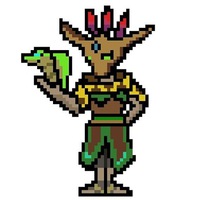
7. Из каких басен Крылова взяты эти крылатые выражения: "Ты все пела? это дело: так поди же
попляши”.“А вы, друзья, как ни садитесь, все в музыканты не годитесь”."В сердце льстец всегда отыщет уголок”.“А Васька слушает да ест”.“Друзья! К чему весь этот шум?”“Как счастье многие находят лишь тем, что хорошо на задних ла 0
0
 0
0
Ответы на вопрос
 Внимание! Ответы на вопросы дают живые люди. Они могут содержать ошибочную информацию, заблуждения, а также ответы могут быть сгенерированы нейросетями. Будьте внимательны. Если вы уверены, что ответ неверный, нажмите кнопку "Пожаловаться" под ответом.
Внимание! Ответы на вопросы дают живые люди. Они могут содержать ошибочную информацию, заблуждения, а также ответы могут быть сгенерированы нейросетями. Будьте внимательны. Если вы уверены, что ответ неверный, нажмите кнопку "Пожаловаться" под ответом.

1. Стрекоза и муравей
2. Квартет
3. Ворона и лисица
4. Кот и повар
5. Волк на псарне
6. Две собаки
 0
0
 0
0

Ответ:
Объяснение:
1. Стрекоза и муравей
2. Квартет
3. Ворона и лисица
4. Кот и повар
5. Волк на псарне
6. Две собаки
 0
0
 0
0

The Fables of Ivan Krylov and Their Winged Expressions
The winged expressions you mentioned, "Ты все пела? это дело: так поди же попляши" ("You sang it all? That's nothing: now dance to it"), "А вы, друзья, как ни садитесь, все в музыканты не годитесь" ("No matter how you try, my friends, you're not fit to be musicians"), "В сердце льстец всегда отыщет уголок" ("A flatterer will always find a corner in your heart"), "А Васька слушает да ест" ("And Vaska listens and eats"), "Друзья! К чему весь этот шум?" ("Friends! What's all this noise about?"), and "Как счастье многие находят лишь тем, что хорошо на задних лапах стоят" ("Many find happiness only in standing well on their hind legs"), are all derived from the fables of Ivan Krylov.
Ivan Krylov was a Russian fabulist who wrote a collection of fables in the early 19th century. His fables are known for their satirical and moralistic themes, often using animals as characters to depict human vices and follies. Krylov's fables became popular in Russian literature and have had a lasting impact on the Russian language and culture.
Here are the fables from which these winged expressions are derived:
1. "Ты все пела? это дело: так поди же попляши" ("You sang it all? That's nothing: now dance to it") - This expression is from the fable "The Monkey and the Glasses." In the fable, a monkey imitates a singer but is then asked to dance, highlighting the idea that imitating someone's actions is not enough.
2. "А вы, друзья, как ни садитесь, все в музыканты не годитесь" ("No matter how you try, my friends, you're not fit to be musicians") - This expression is from the fable "The Ass and the Nightingale." In the fable, an ass tries to sing like a nightingale but fails, emphasizing that everyone has their own talents and abilities.
3. "В сердце льстец всегда отыщет уголок" ("A flatterer will always find a corner in your heart") - This expression is from the fable "The Fox and the Grapes." In the fable, a fox tries to flatter a crow to make it drop a piece of cheese, illustrating the idea that flattery can manipulate people.
4. "А Васька слушает да ест" ("And Vaska listens and eats") - This expression is from the fable "The Cat and the Cook." In the fable, a cat pretends to listen to the cook's instructions while secretly eating the food, highlighting the idea of deceitful behavior.
5. "Друзья! К чему весь этот шум?" ("Friends! What's all this noise about?") - This expression is from the fable "The Peasant and the Bear." In the fable, a bear and a peasant argue loudly, and the bear questions the purpose of their noisy dispute, suggesting the importance of resolving conflicts peacefully.
6. "Как счастье многие находят лишь тем, что хорошо на задних лапах стоят" ("Many find happiness only in standing well on their hind legs") - This expression is from the fable "The Swan, the Pike, and the Crab." In the fable, a swan, a pike, and a crab argue about which form of movement is superior, with the swan emphasizing the importance of being graceful and elegant.
These fables by Ivan Krylov continue to be widely read and referenced in Russian literature and everyday conversations, contributing to the rich cultural heritage of Russia.
 0
0
 0
0
Похожие вопросы
Топ вопросов за вчера в категории Литература
Последние заданные вопросы в категории Литература
-
Математика
-
Литература
-
Алгебра
-
Русский язык
-
Геометрия
-
Английский язык
-
Химия
-
Физика
-
Биология
-
Другие предметы
-
История
-
Обществознание
-
Окружающий мир
-
География
-
Українська мова
-
Информатика
-
Українська література
-
Қазақ тiлi
-
Экономика
-
Музыка
-
Право
-
Беларуская мова
-
Французский язык
-
Немецкий язык
-
МХК
-
ОБЖ
-
Психология
-
Физкультура и спорт
-
Астрономия
-
Кыргыз тили
-
Оʻzbek tili

























